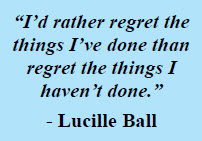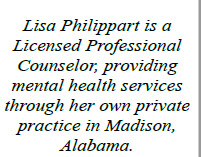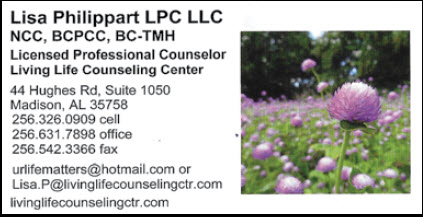 By: Lisa Philippart
By: Lisa Philippart
Regret is a recurring feeling of sadness or disappointment about a past decision. This is different from guilt in that the decision was less obviously wrong at the time—even if it’s clear now. If you struggle with chronic regret, here are ways to deal with it in a healthy way.
If you made a bad decision, it’s normal and inevitable that you will continue to feel regret about it periodically. If you never said “I love you” to that friend before you lost them, you will always remember and regret that. As long as you have a functioning memory, you can’t eliminate regret entirely. But whether your regret is chronic and overwhelming or occasional and fleeting, it all comes down to how you respond to it. If you try to avoid or get rid of regret, this teaches your mind to fear it. And what your mind fears, it becomes hypervigilant and overly sensitive to. The saying is, “What you resist persists.” So instead of constantly trying to eliminate or escape your regret, try accepting that you will always feel some regret from time to time. When regret emerges, remind yourself that just because it feels bad doesn’t mean it is bad…or that you are bad for feeling it. Practice being willing to feel regret and then get on with life anyway.
 Often indulging in self-pity is an unconscious attempt to feel less regret by rationalizing responsibility for what happened. Self-pity feels good in the short term because it temporarily shifts responsibility off you. But usually, it leads to feeling worse in the long run because you tend to elaborate on your regret every time it pops up…reinforcing it and making it more likely to show up in the future. Try instead to acknowledge the pity and control the self-pitying. Pity is an emotion you can’t control. But self-pity is a behavior you can. If your immediate response to regretting emotions is to feel sorry for yourself, you can decide to control that.
Often indulging in self-pity is an unconscious attempt to feel less regret by rationalizing responsibility for what happened. Self-pity feels good in the short term because it temporarily shifts responsibility off you. But usually, it leads to feeling worse in the long run because you tend to elaborate on your regret every time it pops up…reinforcing it and making it more likely to show up in the future. Try instead to acknowledge the pity and control the self-pitying. Pity is an emotion you can’t control. But self-pity is a behavior you can. If your immediate response to regretting emotions is to feel sorry for yourself, you can decide to control that.
A big part of moving past regret is forgiving yourself. Most people misunderstand what forgiveness really is. They assume it’s a feeling (the relief of being forgiven) or a single decision (forgiving myself). In reality, forgiveness is a commitment, not a single decision or feeling. Forgiving yourself means committing to letting go of the impulse to replay your past mistakes when you are reminded of them. It means taking responsibility for your attention and where you choose to put it. Think about it like this…words are just the first step. The real work of forgiveness is making the decision each and every time to let go of the memory of hurt and refocus your attention on moving forward. The same is true with forgiving yourself.
 Most people assume that regret is about the past. Viewed correctly, regret is about how you want to live your life in the future. Regret is your mind trying to be helpful, specifically, you feel regret about past mistakes so that you can avoid them in the future. In my opinion, regret is your brain nudging you to clarify your values! Try this — when you feel regret and start thinking of the “should-haves,” ask yourself instead, “What value is my regret trying to remind me of?” Is it you want to tell people in your life that you love them more often? Is it that you want to be more courageous, or to set better boundaries? When regret strikes, flip your should-haves into want-tos. Don’t think of regrets as trying to keep you a prisoner of the past. They are trying to move you forward into a better future.
Most people assume that regret is about the past. Viewed correctly, regret is about how you want to live your life in the future. Regret is your mind trying to be helpful, specifically, you feel regret about past mistakes so that you can avoid them in the future. In my opinion, regret is your brain nudging you to clarify your values! Try this — when you feel regret and start thinking of the “should-haves,” ask yourself instead, “What value is my regret trying to remind me of?” Is it you want to tell people in your life that you love them more often? Is it that you want to be more courageous, or to set better boundaries? When regret strikes, flip your should-haves into want-tos. Don’t think of regrets as trying to keep you a prisoner of the past. They are trying to move you forward into a better future.
By: Lisa Philippart
Licensed Professional Counselor







